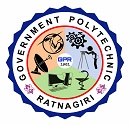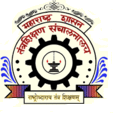Last updated on February 14th, 2025 at 01:19 pm
Department of Electronics & Telecommunication Engineering
Electronics & Telecommunication Engineering
- Vision & Mission
- PEOs
- POs and PSOs
- Faculties
- Laboratories
- Time Table
Department’s Vision & Mission
Vision
“Develop competent Electronics & Telecommunication Engineers to meet global, industrial and socio-economic needs”.

Mission
Devoted to strive the students to achieve academic competency in Electronics & Telecommunication engineering by:
• Using modern practices.
• Industrial interactions.
• Motivating them for lifelong learning.
• Making them socio-economically and environmentally responsible.
Program Educational Objectives (PEOs)
Electronics and Telecommunication Engineering Department will provide the Engineers to Society and Industry who will:
PEO 1: Provide socially responsible, environment friendly solutions to Electronics and Telecommunication engineering related broad-based problems adapting professional ethics.
PEO 2: Adapt state-of-the-art Electronics and Telecommunication engineering broad-based technologies to work in multi-disciplinary work environments.
PEO 3: Solve broad-based problems individually and as a team member communicating effectively in the world of work.
Program Outcomes (POs) and Program Specific Outcomes(PSOs)
PO 1: Basic and Discipline specific knowledge: Apply knowledge of basic mathematics, science and engineering fundamentals and engineering specialization to solve the engineering problems.
PO 2: Problem analysis: Identify and analyse well-defined engineering problems using codified standard methods.
PO 3: Design/ development of solutions: Design solutions for well-defined technical problems and assist with the design of systems components or processes to meet specified needs.
PO 4: Engineering Tools, Experimentation and Testing: Apply modern engineering tools and appropriate technique to conduct standard tests and measurements.
PO 5: Engineering practices for society, sustainability and environment: Apply appropriate technology in context of society, sustainability, environment and ethical practices.
PO 6: Project Management: Use engineering management principles individually, as a team member or a leader to manage projects and effectively communicate about well-defined engineering activities.
PO 7: Life-long learning: Ability to analyse individual needs and engage in updating in the context of technological changes.
PSO 1:. Electronics and Telecommunication Systems: Maintain various types of Electronics and Telecommunication systems.
PSO 2: EDA Tools Usage: Use EDA tools to develop simple Electronics and Telecommunication engineering related circuits.
Faculty Details
BHUSHAN SHIVAJI KULKARNI
LECTURER IN ELECTRONICS
- kulkarnibhushan4@rediffmail.com
- 7507657653
SHASHIKANT MOHANDAS SARYAM
LECTURER IN ELECTRONICS
- saryamshashikant@gmail.com
- 9823745093












